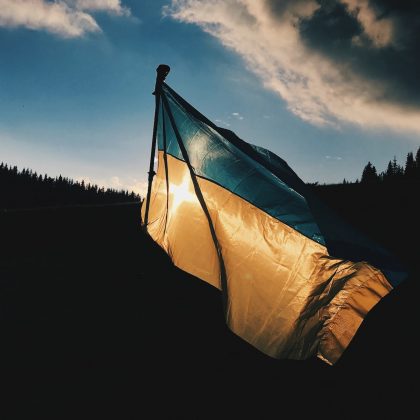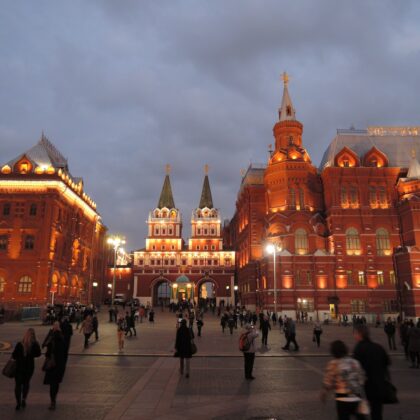Forthcoming: Addressing Ongoing Threats
In our next issue, TDR is publishing two significant essays in the TDR Comments section of the journal: “A Letter from Moscow” by a scholar who lives there; and Richard Schechner’s “Postpone the Great Game.” Both essays deal with ongoing threats to the world.
In the “Letter from Moscow,” TDR’s correspondent writes about what it’s like to live in the Russian capital after Putin’s army invaded Ukraine. Our letter writer is a performance studies scholar with extensive experience both in the USA and Eastern Europe. The scholar reports that the city is not saturated by military symbols, the main institutions are functioning, there is no mobilization. “The new cage is being built smoothly and gradually,” the scholar notes. Still, opposition to the war is not tolerated. Protestors are labeled “foreign agents.” They are harassed and arrested. As the war grinds on, the situation in Moscow deteriorates. And as during the Cold War, bright minds and talents are leaving Russia.
Richard Schechner’s essay refers to “The Great Game”: the 19th-century struggle among British, Russian, and regional soldiers, spies, merchants, emirs, kings, and adventurers in Afghanistan to control access to India. According to Schechner, this “Great Game” has new life as the Ukraine war. Calling these kinds of operations a “game” recognizes their performativity. War has always been theatrical, performed in “theatres of war,” widely spectated both live and via media. But is war inevitable? In the 1930s both Mao Zedong and Chiang Kai-shek recognized the invasion of China by the Japanese as an existential threat to China. The two adversaries agreed to postpone their civil war, their “great game,” in order to defeat Japan. Noting that climate change is an existential threat to the world, Schechner proposes postponing all wars to focus humanity’s collective effort on “defeating” climate change. Once climate change is dealt with, humans can resume warring—but in a new way, using virtual means that do not damage the environment.
Visit Cambridge Core to read the latest issue of TDR.





